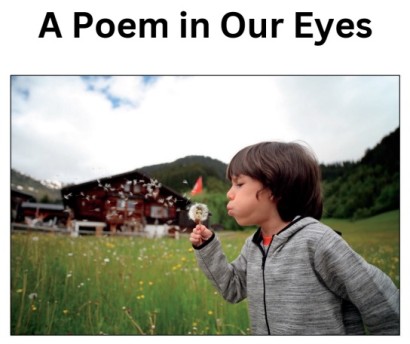Schlow's Allen Gallery welcomes "an annual celebration of Ridgelines' semester-long program, “A Poem in Our Eyes,” highlighting the rich intellectual and creative capacities of those living with memory loss." The exhibition will hang in the gallery throughout the month of June.
"A Poem in Our Eyes” is a collaboration between residents of Centre Crest Nursing Home’s memory care unit (Stanton Court), local artists, and a teaching poet. During the weekly, semester-long program, participants work with a Ridgelines teaching artist to write spontaneous poems in response to paintings, photographs, drawings, prints, and sculptures by artists with ties to Centre County. Ridgelines' sessions involve arguments and laughter, silence and talk, thoughtful discussions and questions.
When we look at an artwork together, we ask: What do you see? How does it make you feel? What would you like to do there? What is the weather like in this picture? What happens before, or after? Anything that people say gets written on a white board for all to see. Although the teaching poet’s hand is involved in copying down and lineating the poems, all of the words and titles come directly from participants.
It might sometimes seem, as you look at the poems and artworks displayed here, that the words wander far afield from the images they respond to. And yet in our meetings, it is often clear that the artworks have triggered thoughts of people, places, experiences, and feelings. An image of a grassy field might put someone in mind of two people on a date—not really such a stretch. And this is, after all, the logic of poetry: notes the poet C.D. Wright, “The goal is not to make a story but to experience the whole mess.”
The goals of “A Poem in Our Eyes” are these: To provide rich intellectual experiences for those living with memory loss; to foster social inclusion and a sense that their words and imaginings are valued; to provide the satisfaction of making something new; to increase mental and emotional well-being; and to provide a vehicle for communicating with others in creative ways. The program also aims, in the end, to challenge the notion that those living with memory loss are not “making sense.” Clearly, they deeply are.

